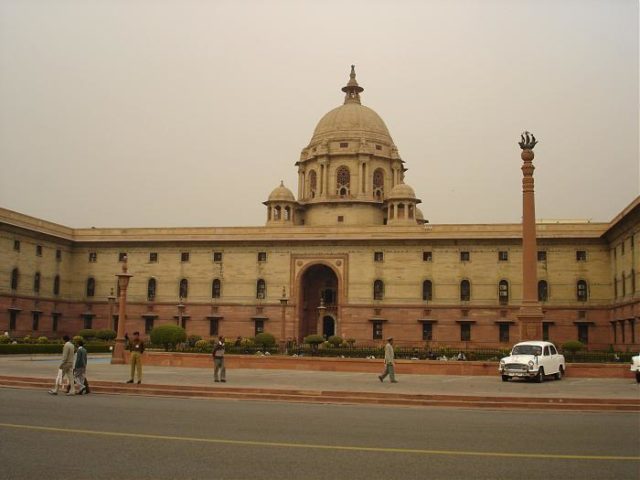As the euphoria of another Independence Day passes with the flags of patriotism flying high over our heads and in our hearts, we feel thankful that the reigns of democracy are in the able hands of the Government we do have.

While it appears from most communication emerging from the official channels and government-friendly media houses that the reign of the National Democratic Alliance has been one of unmitigated success, we do believe it is also important to highlight that there is always scope for improvement. As we settle into the next phase of national life, with the prospect of the same government staying in power for the rest of our natural lives, we believe that the following are areas of priority that the Government should prioritise for smooth running of the ship of state.
1. Spending on Education
As India’s demographic dividend stands in danger of dissipation, the need to invest in education is more urgent than ever. Within this, the emphasis needs to be on primary and rural education, rather than the more glamorous higher education and management courses that are easier to showcase. As of 2017, the education outlay at the Central level had been increased by nearly 10%, but it could be argued that this is not nearly enough. Moreover, the same commitment needs to be seen from State governments, at least those that are run by the same party as the Central Government.
2. Standing with Farmers
The Indian farm crisis of 2017 has been many years in the making. It is known that inadequate rural credit and dependence on rainfall has been the bane of the agri-economy for ages. However, there needs to be a concerted, nation-wide attempt to resolve these issues rather than resorting to piecemeal loan waivers and schemes in election years. A sustained focus on improving the quality of irrigation facilities, fodder and fertilizer and sustainable farming practices would go a long way towards alleviating farm distress.
3. Ease of Doing business
Despite attempts by successive governments, India’s ranking on the ‘Ease of doing business’ index has languished around the 130-140 mark. A combination of a complex legal framework and massive bureaucratic time lag means that the efforts to change this condition will be considerable. We need to focus on a comprehensive reform of all company law from registration to bankruptcy to labour in order to encourage entrepreneurship rather than haphazard ‘schemes’ and ‘special zones’.
4. Reform the taxation system
By implementing a single Goods and Service Tax regime throughout the country, the NDA has undoubtedly done the nation a great service. However, there remain structural issues within the tax system in our country that need to be addressed urgently. Firstly, the ration of tax-to-GDP continues to be extremely low. At 17% it is far below any developed nation (33%) or even comparable countries like Indonesia or Greece (24%). More surprisingly, the figure has remained constant since about 1991, which means that this is not a flaw that can be conclusively laid at the feet of the Congress party, since the country has been under non-Congress rule for half of that time. What is perhaps even worse, is that the ratio of direct taxes (which impacts the rich more than the poor) is much higher than that of indirect taxes (which is the exact opposite). Addressing this problem is essential to reduce both inflation and inequality.
5. Encourage the Arts and sports.
The economy is a wonderful thing, but stature comes from achievement in art and sport. And the realistic assessment of both these disciplines, especially art, is that they do not survive in a commercial environment. Patronage is necessary, and like the US and its National Endowment for Arts, India must have a mechanism to fund its dancers and painters, athletes and writers, musicians and poets that goes beyond political awards and photo-ops. It is entirely possible that the very artists the government so patronizes will turn around and criticise them, but an outlet for dissent in such form is often preferable to a political outlet, and may even be a shrewd political move.
6. Focus on governance over politics
If one criticism can be fairly levied at the NDA government, it is that they have spent too much time trying to win elections rather than govern. While state elections have their own place, and it is important to win them, the machinery and personnel of the Central Government should be engaged primarily in governance of the country. It would be preferable if, now that the country is virtually under a single party, the Government would focus on what is best for the nation as a whole than focus on states going for elections soon.
7. Reign in the base
The base support of the ruling party, especially when it was at its lowest trough politically, has always been the highly-motivated religious crusaders who wish to see India become a Hindu nation. Their fervour and faith is commendable, and in many ways, what we see today is them reaping the rewards for it. But governance is not politics, and an angry seed leads to a bitter harvest. If the NDA Government wishes to ensure that the media and the people focus on their achievements in economics and foreign policy, they must first have some genuine achievements to focus on, and then ensure that the political narrative is not hijacked by the actions of lynch mobs and rioters. In the long run, a GDP number may be forgotten, but sectarian violence rarely is.
In conclusion, the future for India is, as always, clouded with uncertainty in every aspect apart from the political. It is for the Government in power to harness the powers they have and use them for the betterment of the country.






























